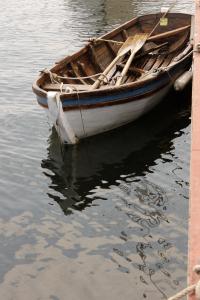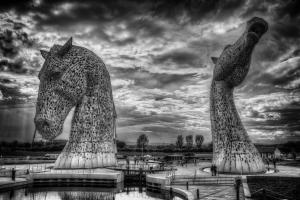
Tuning the Beast
I prepare contingencies for all outcomes. No.
I’ve prepared for this: a body. A key. As if
that cloth draped a leg. Not a leg
but the representation of a limb.
Another fragment, brought forth and opened.
Not a limb, an arrow, perhaps, pointing to the sea.
An oar, brought inland and unrecognized
for its purpose, directed or aimless. No, not an oar.
A neck, polished, and a chamber, with strings.
Repetition, fixation. Position. Intent.
I pluck and strum, pick and stroke, maintaining
space, steel above wood, bending notes,
moving sound in time, purposefully, from
this place to that, the left hand, creating,
conversing. The right, reasoning, controlling,
burning its past to the present, allowing,
preventing, rendering beat, consistent
motion, shaping only this moment, this now.

“Tuning the Beast” was drafted during the August 2015 Tupelo Press 30-30 Challenge, thanks to Sunshine Jansen’s sponsorship. It subsequently appeared in The Blue Nib in September 2016.



 m
m











